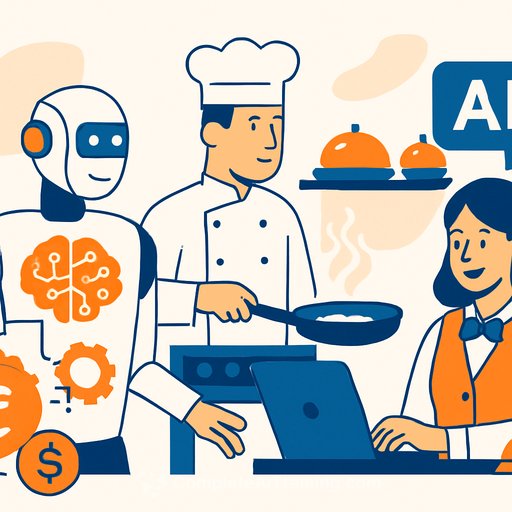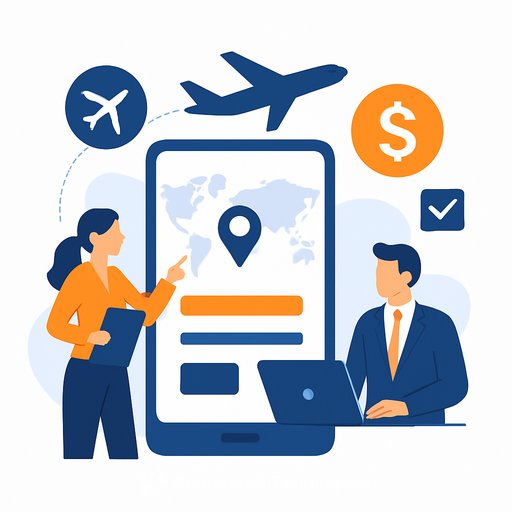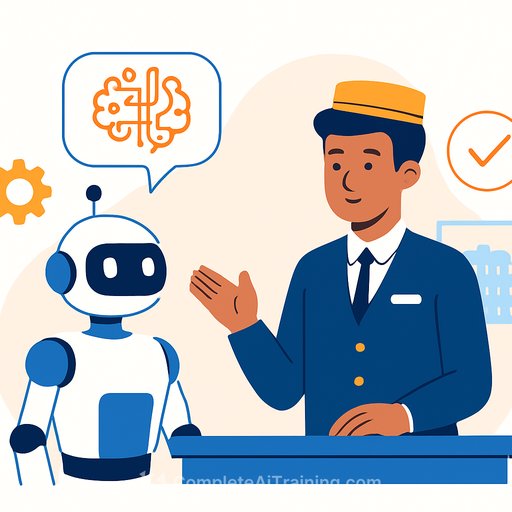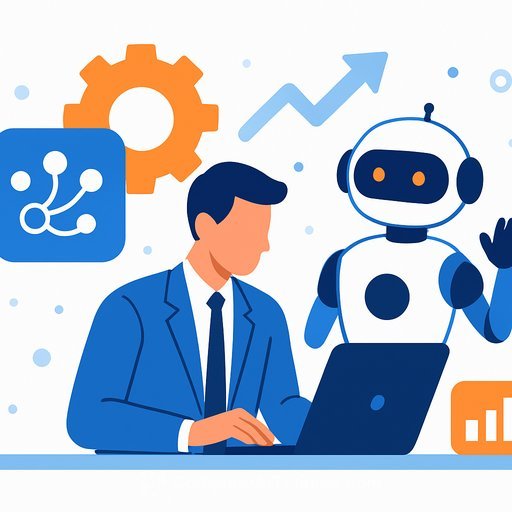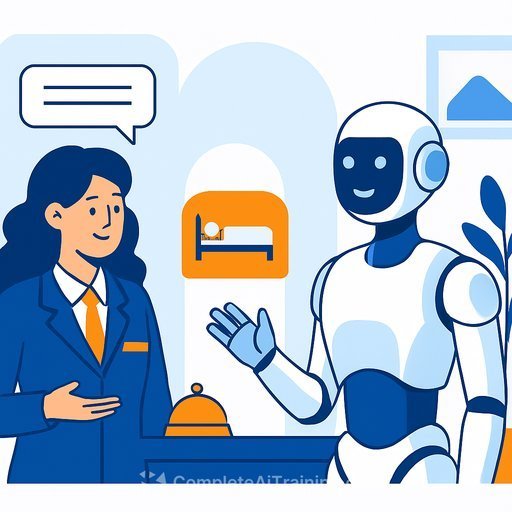How AI Helps Irish Hospitality Cut Costs and Boost Efficiency
Irish hotels face the challenge of recovering revenue while managing rising costs. With industry revenue at €4.1bn and a modest rebound expected in 2024, hoteliers need practical tools that improve efficiency without compromising guest experience. AI offers clear benefits by matching rooms to demand, automating workflows, and reducing energy use.
From personalised guest engagement to smarter back-office operations, AI supports Irish hospitality businesses in protecting margins and keeping rooms full during busy periods like GAA fixtures and St. Patrick’s Day.
Guest Engagement and Direct Bookings
Guests now expect fast, effortless communication. AI chatbots and agents provide 24/7 support across web chat, WhatsApp, and social media, handling FAQs and nudging guests toward direct bookings and upsells.
This reduces missed inquiries and speeds up responses, freeing staff to tackle complex requests. Hotels can also use dynamic pricing forecasts to adjust rates around high-demand events, protecting occupancy from OTA leakage.
Revenue and Yield Optimisation
AI-driven revenue management tools analyse market data, competitor prices, weather, and local events to optimise room rates in real time. Platforms like RoomRaccoon’s RaccoonRev Plus forecast pricing up to a year ahead, letting managers apply suggested rates automatically or with minimal input.
This approach reduces knee-jerk discounts, improves average daily rates, and balances occupancy effectively, especially around key Irish events.
Operations and Back-Office Automation
Small operational changes add up to significant savings. Tools like PurpleTree’s HR Duo streamline staff scheduling to prevent overstaffing and last-minute rota changes.
Cloud accounting platforms centralise invoicing, payroll, stock, and cashflow, cutting down manual work. Combining OCR and automated invoice processing speeds up accounts payable and reconciliations, turning what used to be paperwork mountains into click-driven workflows.
Food & Beverage Efficiency and Waste Reduction
Food waste is a major cost and sustainability issue. Irish households throw away substantial amounts annually, so guests appreciate hospitality that is waste-conscious.
Hotels can reduce waste by partnering with surplus food platforms, using data-driven purchasing, and adjusting menu planning. These measures protect margins and support a positive public image.
Energy and Asset Efficiency
Energy use, especially from HVAC systems, is a large expense. Smart thermostats and occupancy sensors allow rooms to save energy when unoccupied and return to comfort before guests arrive.
Building management systems like ABB Cylon offer central monitoring and alert teams to faults early, preventing costly emergency repairs and trimming energy bills by up to 40%.
Labour Pressure Relief and Staff Productivity
Labour costs can be around 40% of turnover in Irish hospitality. Automating routine tasks with AI booking agents, digital concierges, and voice assistants reduces staff workload.
These systems handle availability checks, dietary queries, and billing questions, freeing employees to focus on guest interaction. Automation can save up to 15 staff hours per week, turning missed calls into bookings.
Marketing, Loyalty, and Channel-Mix Management
AI enables precise marketing by personalising offers based on guest location and behaviour. This drives direct bookings and increases lifetime value by tailoring upsells and loyalty perks.
Integrating website behaviour, CRM data, and review signals helps run targeted campaigns and reduce reliance on OTAs.
Practical Adoption, ROI, and Risk Management
Successful AI adoption starts with one pilot project focused on clear KPIs like direct booking uplift or staff hours saved. Choose vendors that integrate smoothly with your property management system and ensure GDPR compliance.
Chatbots can be implemented in 2–4 weeks, with typical starter costs between £200–500 per month. Most pilots achieve positive ROI within 6–12 months by focusing on practical, margin-protecting use cases.
Training, Upskilling, and Sector Readiness
Training is key to making AI pay off. Job-focused workshops and modular courses help staff develop skills in prompt engineering and AI tool workflows.
Providers offer practical sessions covering marketing, HR, guest experience, and waste reduction, turning scepticism into measurable results. Mixing classroom and hands-on practice builds confidence and creates internal AI champions.
For those interested, explore practical AI training options at Complete AI Training.
Next Steps for Irish Hospitality Operators
Start small: pick one AI use case, set measurable goals, and run a pilot that respects guest privacy and GDPR. Use readiness checklists and realistic budgets to avoid surprises.
Consider half-day workshops for frontline teams to build familiarity with AI tools. Focus on scaling proven pilots to widen margins while maintaining the warm, human welcome Irish guests expect.
FAQs
- What cost savings and efficiency gains can AI deliver?
AI can boost profits by improving revenue management, save up to 15 staff hours weekly via automation, reduce energy consumption by up to 40%, shorten financial closing cycles, and cut food waste in line with national figures of around 835,000 tonnes annually. - Which AI use cases are most practical now?
Practical options include 24/7 AI booking agents, revenue optimisation tools, back-office automation, data-driven F&B waste reduction, and smart building management systems. - How quickly and at what cost can AI pilots be implemented?
Chatbots can be live within 2–4 weeks at costs of £200–500/month. Revenue management tools and training programs vary from £300–1,000/month. ROI is usually seen within 6–12 months. - How should hotels manage risk and measure success?
Begin with one focused pilot, measure a small set of KPIs, choose vendors that integrate with your PMS, and ensure GDPR-compliant data handling to minimise risk. - What training is available for Irish hospitality teams?
Short, practical workshops and online courses teach prompt engineering and AI workflows. Providers offer blended learning paths to quickly upskill teams and deploy pilots with confidence.
Your membership also unlocks:

